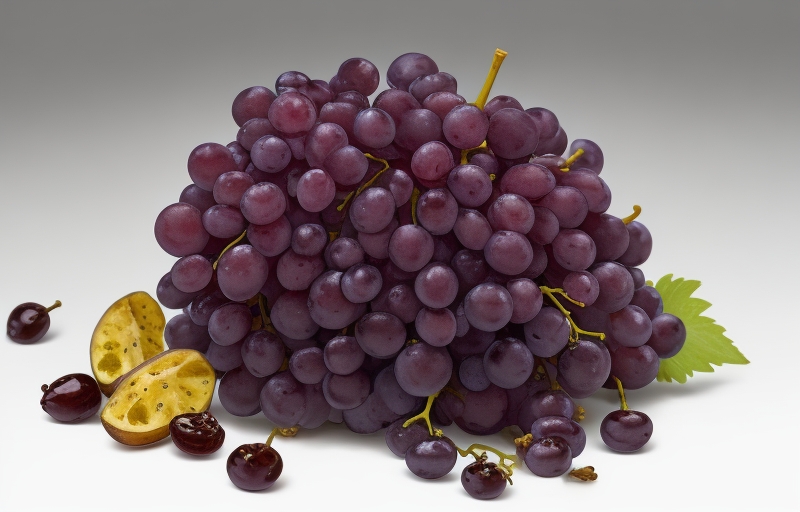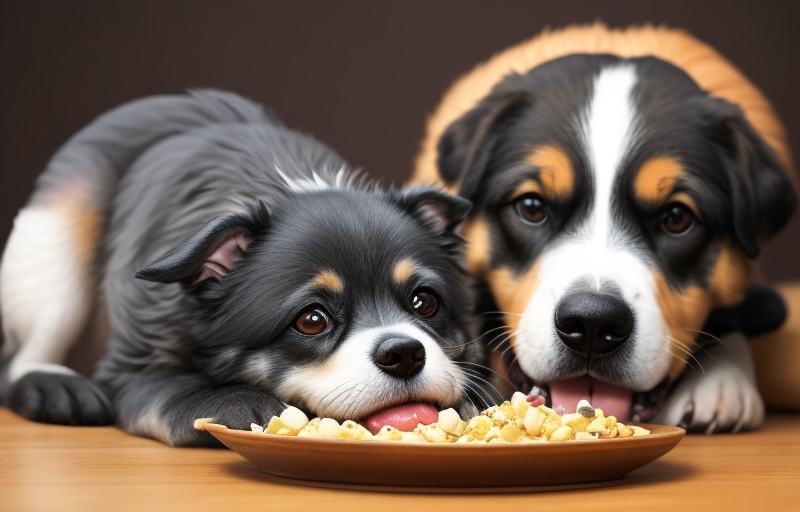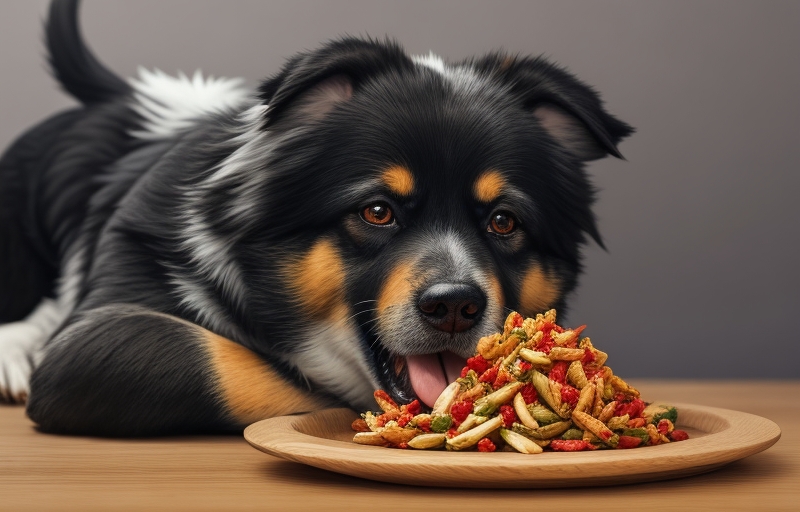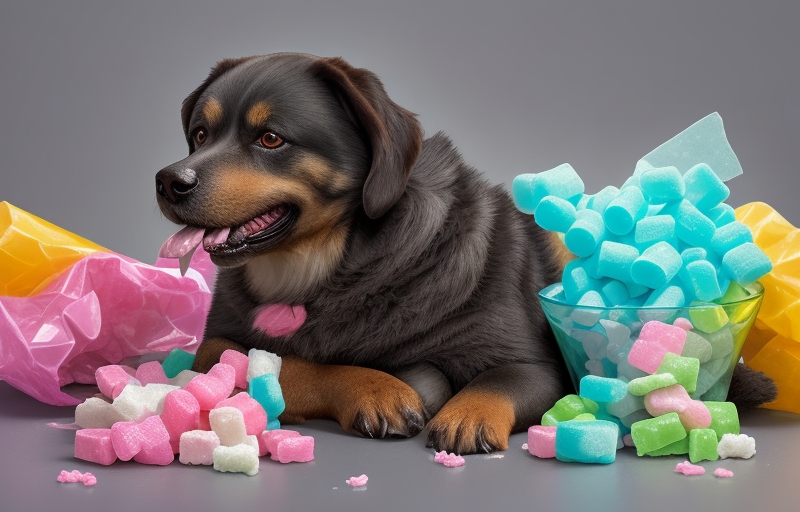As responsible pet owners, we must be aware of the 21 Dangerous Foods Your Dog Should Never Eat that can pose severe threats to our dogs’ health. While we may be tempted to share our meals with them, certain foods are toxic to dogs and can lead to severe consequences. In this article, we’ll explore 21 dangerous foods your dog should never eat and investigate the reasons behind their harmful effects.
21 Dangerous Foods Your Dog Should Never Eat
1. Chocolate:
Chocolate contains theobromine, a stimulant that affects dogs’ central nervous and cardiovascular systems. Dark chocolate and baking chocolate are particularly dangerous due to higher theobromine levels.
2. Grapes and Raisins:

Even in small amounts, grapes and raisins can lead to kidney failure in dogs. The exact toxic substance in these fruits remains unknown, making it crucial to avoid them entirely.
3. Xylitol:
Found in sugar-free gum, candies, and baked goods, xylitol can cause a rapid release of insulin in dogs, leading to hypoglycemia. Seizures and liver failure may follow.
Read Also: What Color Is Dog Breast Milk? Best Pet mat
4. Onions and Garlic:

Allium compounds in onions and garlic can damage a dog’s red blood cells, leading to anemia. Even small quantities can be harmful, so it’s best to avoid them altogether.
5. Alcohol:
Dogs metabolize alcohol differently than humans, and even small amounts can cause vomiting, diarrhea, difficulty breathing, and even death. Keep alcoholic beverages out of reach.
6. Caffeine:
Similar to chocolate, caffeine is toxic to dogs. It can lead to restlessness, increased heart rate, tremors, and in severe cases, caffeine poisoning.
7. Avocado:

Avocado contains persin, which can cause vomiting and diarrhea in dogs. The pit is a choking hazard, and its ingestion can lead to intestinal blockage.
8. Nuts:
Macadamia nuts, in particular, can cause weakness, vomiting, and tremors in dogs. Additionally, nuts pose a choking hazard and can lead to pancreatitis due to their high fat content.
9. Bones:
Cooked bones, especially poultry bones, can splinter and cause choking or damage to the digestive tract. It’s safer to provide dogs with raw bones specifically designed for chewing.
10. Milk and Dairy:
While small amounts of plain yogurt may be safe, many dogs are lactose intolerant, and dairy products can cause digestive upset, including diarrhea.
11. Salt:
Excessive salt intake can lead to sodium ion poisoning in dogs, resulting in symptoms like vomiting, diarrhea, tremors, seizures, and, in severe cases, death.
12. Fatty Foods:

Foods high in fat, such as fried foods and fatty cuts of meat, can lead to pancreatitis in dogs. This painful condition can be life-threatening.
13. Raw Eggs:
Raw eggs may contain Salmonella or E. coli, posing a risk of bacterial infection. Additionally, raw egg whites contain avidin, which interferes with the absorption of biotin.
14. Almonds:
Almonds, particularly when raw or flavored, can be difficult for dogs to digest and may cause gastrointestinal distress. The larger concern is the risk of obstruction if a dog tries to eat them whole.
15. Citrus:
Citrus fruits, such as lemons and oranges, contain citric acid, which can cause irritation and upset stomach in dogs. The essential oils in citrus peels are especially toxic.
16. Liver:
While liver is a nutritious food, excessive consumption can lead to vitamin A toxicity, affecting the bones and joints of dogs.
17. Mushrooms:

Wild mushrooms are dangerous to dogs, as many varieties are toxic. Even some store-bought mushrooms can cause gastrointestinal upset.
18. Human Medications:
Many medications, including over-the-counter ones, can be toxic to dogs. Keep all medications out of reach, and consult your vet before giving your dog any human medications.
19. Raw Fish:
Raw fish, particularly salmon, can carry parasites that can harm dogs. Additionally, raw fish may contain thiaminase, an enzyme that breaks down thiamine (Vitamin B1).
20. Candy and Gum:

Aside from xylitol, candies and gums often contain high levels of sugar and artificial sweeteners, which can contribute to obesity and dental problems in dogs.
21. Tobacco:
Nicotine in tobacco products, including cigarettes and e-cigarettes, can be fatal to dogs. Ingestion can lead to increased heart rate, tremors, and, in severe cases, death.
Read Also: What Can Dogs NOT Eat?
Conclusion:
Awareness of the foods harmful to dogs is a crucial aspect of responsible pet ownership. While sharing our meals with our canine companions is tempting, certain foods can severely affect their health. By avoiding these 21 dangerous foods and consulting with your veterinarian about a healthy diet for your dog, you can ensure your furry friend’s long, happy, and healthy life. Remember, when in doubt, it’s always best to err on caution and prioritize your dog’s well-being.
FAQs
1. Can I treat my dog small amounts of chocolate?
No, chocolate contains theobromine, which is toxic to dogs. Even small amounts can lead to symptoms like vomiting, restlessness, and, in severe cases, seizures.
2. Why are grapes and raisins harmful to dogs?
The exact toxic substance in grapes and raisins is unknown, but ingestion can cause kidney failure in dogs, leading to symptoms such as vomiting, lethargy, and loss of appetite.
3. Are all onions and garlic harmful to dogs?
Yes, onions and garlic, whether raw, cooked, or powdered, contain compounds that can damage a dog’s red blood cells, leading to anemia. Symptoms include weakness, vomiting, and breathlessness.
4. What’s wrong with feeding my dog bones?
Cooked bones can splinter, posing a choking hazard and causing intestinal blockages. Stick to specially designed dog treats and chews to avoid these risks.
5. Can I share a small piece of my sandwich with my dog?
It depends on the ingredients. Foods like onions, garlic, avocado, and certain deli meats are harmful to dogs. Always check the ingredients and consult with your veterinarian before sharing human food with you

2 thoughts on “21 Dangerous Foods Your Dog Should Never Eat”